 Told by Rabbi Lawrence Kushner, The Book of Miracles, Jewish Lights Publishing
Told by Rabbi Lawrence Kushner, The Book of Miracles, Jewish Lights Publishing
“The following story is told to me by my teacher, Rabbi Zalman Schachter Shalomi.”
A long time ago in the northern part of Israel, in the town of Tsefat, the richest man in town was sleeping, as usual, through Shabbat morning services. Every now and then, he would almost wake up, trying to get comfortable on the hard wooden bench, and then sink back into a deep sleep. One morning he awoke just long enough to hear the chanting of the Torah verses from Leviticus 24:5-6 in which God instructs the children of Israel to place twelve loaves of challah on a table in the ancient wilderness tabernacle.
When services ended, the wealthy man woke up, not realizing that all he had heard was the Torah reading about how God wanted twelve loaves of challah. HE thought that God had come to him in his sleep and had asked him to personally bring twelve loaves of challah to God. The rich man felt honored that God should single him out, but he also felt a little foolish. Of all the things God could want form a person, twelve loaves of challah did not seem very important. But who was he to argue with God. HE went home and baked the bread.
Upon returning to the synagogue, he decided the only proper place for his holy gift was alongside the Torah scrolls in the ark. He carefully arranged the loaves and said to God, “Thank You for telling me what You want of me. Pleasing you makes me very happy.” Then he left.
No sooner had he gone than the poorest Jew in the town, the synagogue janitor, entered the sanctuary. All alone, he spoke to God. “O Lord, I am so poor. My family is starving; we have nothing to eat. Unless you perform a miracle for us, we will surely perish.” Then, as was his custom, he walked around the room to tidy it up. When he ascended the bimah and opened the ark, there before him were twelve loaves of challah! “A miracle!” exclaimed the poor man, “I had no idea You worked so quickly! Blessed are You, O God, who answers our prayers.” Then he ran home to share the bread with his family.
Minutes later, the rich man returned to the sanctuary, curious to know whether or not God ate the challah. Slowly he ascended the bimah, opened the ark, and saw that the challot were gone. “Oh, my God!” He shouted, “You really ate my challot! I thought You were teasing. This is wonderful. You can be sure that I’ll bring another twelve loaves – with raisins in them too!”
The following week, the rich man brought a dozen loaves to the synagogue and again left them in the ark. Minutes later, the poor man entered the sanctuary. “God, Seven loaves we ate, four we sold, and one we gave to charity. But now, nothing is left and, unless You do another miracle, we surely will starve.” He approached the ark and slowly opened its doors. “Another miracle!” he cried, “Twelve more loaves, and with raisins too! Thank you God; this is wonderful!”
The challah exchange became a weekly ritual that continued for many years. And, like most rituals that become routine, neither man gave it much thought. Then, one day, the Rabbi, detained in the sanctuary longer than usual, watched the rich man place the dozen loaves in the ark and the poor man redeem them.
The Rabbi called the two men together and told them what they had been doing.
“I see,” said the rich man sadly, “God doesn’t really eat challah.”
“I understand,” said the poor man, “God hasn’t been baking challah for me after all.”
They both feared that now God no longer would be present in their lives.
Then the Rabbi asked them to look at their hands. “Your hands,” he said to the rich man, “are the hands of God giving food to the poor. And your hands,” said the Rabbi to the poor man, “also are the hands of God, receiving gifts from the rich. So you see, God can still be present in your lives. Continue baking and continue taking. Your hands are the hands of God.”
Leave a Reply
Posted in Activities for home and classroom





